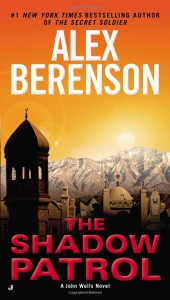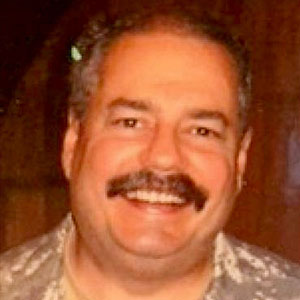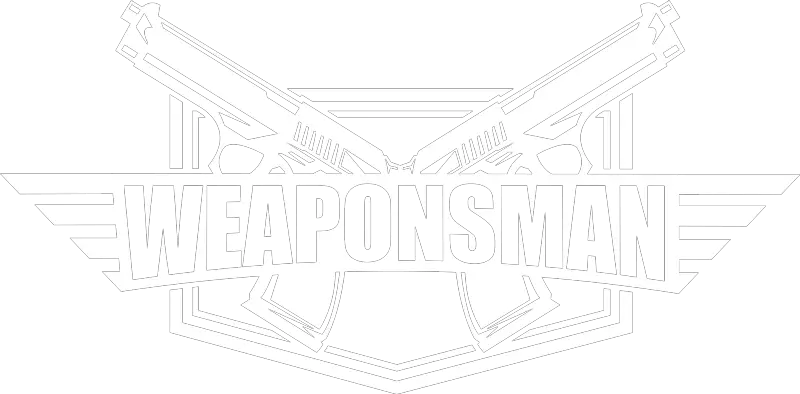 There is a downside to having the sort of personal characteristics that Special Forces either selects for, or develops in, a guy. Prominent among these characteristics is a level of persistence that is not normally found in neurotypical human beings.
There is a downside to having the sort of personal characteristics that Special Forces either selects for, or develops in, a guy. Prominent among these characteristics is a level of persistence that is not normally found in neurotypical human beings.
That sounds like a wonderful thing, and it is, when you’re trying to cover 12 miles in 2 ½ hours with a broken rucksack frame, after a week with little food and no sleep. It comes in handy when you’re dealing with such persistence-killers as the cable monopoly and the Registry of Motor Vehicles, too. Or trying to train a teenager, or a dog. But you can probably imagine some circumstances when it’s maladaptive. For a bunch of guys who probably hold some global collective divorce percentage record, we have a tendency to cling to exes that ought to be set free. And we tend to finish every book we start, even if the book stinks.
In middle age, we can remember every single book we didn’t finish — fewer than 20 -, and we’ve probably averaged four books a week since childhood. We have no illusion that’s normal, even if Dogged Book Syndrome lacks a definition in the DSM-IV.
And that was our exact problem with Alex Berenson’s The Shadow Patrol. (New York: Putnam, 2012). That mindless compulsion to finish a book that we did not like.
It started off well enough. The book has an attractive jacket, with mountains that really look like Afghanistan, unlike so many illustrations that draw their inspiration from the Southwestern USA — or from Warner Brothers’ cartoon version of Road Runner fame. True, the four or five mosques cheek by jowl is a bit puzzling, but we put it down to an artist who thinks Islam is just like Christanity and so various mosques cluster like churches in a New England town square, Sunni and Shia and Ismailis nodding to another on their way to prayers like Lutherans and Congregationalists and Episcopalians (whom you can tell, as their nods are a bit shallower and more uptight).
That’s not a view anyone who’s lived among the Moslems of Southwest Asia might take, but, we can cut the artist some slack. No Afghan mountain tribesman lives in a society more rigid or isolating than the New York arts and publishing circle, after all.
But the book, per the sort of glance one gives a blurb and front matter in a store, had more promise. Many reviewers praised Berenson as a spy novelist. There were red flags, if we’d caught them. Berenson’s a New York Times reporter who’s covered three stories the Times has done a lousy job on: Iraq, Katrina, and the Madoff fraud. Anybody writing for the Times has to be assumed to be hostile to, and mystified by, today’s military. But… against that, there is this: a dedication To all the men and women still fighting. And an acknowledgement of an embed with American troops. Could be promising.
And all those reviewers said he was the best since Len Deighton, Graham Greene, Eric Ambler.
Nope.
While the story starts off promising, with a much-altered retelling of the incident in which a supposed agent turned out to be a double and eliminated a number of CIA officers and contractors with a suicide bomb, it quickly devolves into a canned retelling of all the 99 bad movies about troops smuggling drugs in Vietnam.
Even his infantrymen come right out of bad Vietnam movies — poor, minority, stupid, in the Army only because they lack any other options in life. The rogue troops doing the drug smuggling — how they do it is never made really clear — aren’t even bright enough to do crime on their own, but they have to be led by, wait for it… rogue CIA agents.
It’s one more tale in which the valiant guy with the pedigree like a New York Times writer has met the enemy, and they are, naturally, the renegades and bloodthirsty, soulless vampires of the Stryker Brigades and, naturally, Delta.
Here’s an example of the sort of bullshit Berenson writes:
Francesca would be bummed when this tour was finished. It was his third and last. Not his choice. The Army gave you only three. In the three tours, two in Afghanistan and one in Iraq, he’d racked 56 kills, a good number, especially with the drones doing so much work these days. Maybe good was the wrong word. Francesca wondered whether all that killing had changed him. Course it had. Back home, civvies called guys like him serial killers. The more he pulled the trigger, the easier it came. He’d given up waiting for God or anyone else to punish him. He hadn’t been hit by lightning or gotten cancer or gone blind. He was in the best shape of his life. Plenty of money in the bank, and more coming. The Joes treated him like a minor god.
He wasn’t too worried about payback in the next world either. He’d watched close through his scope for souls leaving the man he killed. Hadn’t seen a single one. Only the red mist, the cloud of blood and tissue that shrieked from the body when a bullet cut through. The afterlife was a fable for little boys and girls. Not real men like him.
Yeah, that’s definitely how snipers think. And that’s why they start smuggling drugs and murdering Americans.
If you’re some assclown with a cube on 43rd Street, that’s how you think they think, anyway.
Berenson’s dim insight into the inner lives of his own characters doesn’t end there; it’s pretty universal. Another character is supposedly a convert to Islam, a conversion that not only is never explained, but that makes no visible impression upon the character, who can’t even bestir himself to salat. It seems more likely that what we’re seeing is Berenson’s projection of his own wishy-washy and disbelieving relationship with his own ancestral faith, whatever it isn’t.
The guy can write reasonable dialogue, and he can write a reasonable action scene, although some of his stuff, again, indicates he slept through his embed and falls back on movie fandom to understand guns and gunfights. In one crucial scene, a character sneaks up on a sniper team armed only with a Makarov and no spare mag, and a knife. (It’s OK, though, because his Makarov fits ten rounds in the eight-round mag; yes, there’s allegedly a 10-round Mak magazine out recently, but you won’t find it in Afghanistan).
Realistic? Did we tell you he kills them?
…even though they detect his approach?
…. and without any injury to himself?
… and… and… (here’s the best part) … he sneaks up to them on a motorcycle?
That’s how dreadful this book is.

Kevin was a former Special Forces weapons man (MOS 18B, before the 18 series, 11B with Skill Qualification Indicator of S). His focus was on weapons: their history, effects and employment. He started WeaponsMan.com in 2011 and operated it until he passed away in 2017. His work is being preserved here at the request of his family.

11 thoughts on “Rotten Read Review: Berenson: The Shadow Patrol”
Thank you for taking one for the team, and another public service message in Weaponsman’s Reveiew of Truly Atrocious Diaper Spackle.
To return the favor, never, ever pick up the dredged-from-the-dead-man’s filing cabinet manuscript Pirate Latitudes, flogged out under the late Michael Crichton’s name. If you left this in chemo wards, the suicide rate would skyrocket. There’s a reason the author never showed it the light of day, and the agent who did so after his death should be charged with grave robbery and defamation of the dead, and like many TV sitcoms, be shot before a live audience.
Pour encourager les autres.
It occasioned my Two Commandments Of Modern Fiction:
1) Never read a author’s last book before they die (which usually brings the phrase “round the bend” vividly to mind)
2) Never, ever read any books published after they die, no matter how strong the temptation.
Like Odysseus, have yourself tied to the mast or stop your ears with wax lest you fall prey and reach for your wallet.
I thought Crichton’s Micro, that was finished posthumously by science journo Richard Preston, was a decent postmortem effort. Of course, the science was more screwed-up than the parking lot at a Denver dope dispensary, and I had to suppress my inner bio-D guy and stop shouting, “That’s not how phages work!” at the pages.
The Tom Clancy books have made a comeback under Mark Greaney. The criticism of Clancy was his work ethic — he liked to stay close to home, he didn’t like working hard, and in the end, his health was crappy, so he just appended his name to many others’ works. There are some issues with Greaney’s “the Campus” novels, which he is writing entirely using Clancy’s characters (although Clancy’s name remains the big one). But they are better than the last decade or two of Clancy’s own work.
With Aesop, may I also endorse your efforts as deserving of the Green Meconium Badge with Clusters in review of the diaper spackle?
And all those reviewers said he was the best since Len Deighton, Graham Greene, Eric Ambler.
AB’s spy writing can only be enjoyed, I suspect, by those whose life experience has been bounded by Manhattan cubicals or long stints at accounting firms.
As a teenager some authors (aside from the usual classics) caught my attention, including Aldous Huxley and Eric Ambler. I read, I believe, every work of theirs which was available. I tried to keep a bit of Arthur Simpson in my nature. Even today, examining the unwinding of our Iraq and Afghanistan participation, I find Eric Ambler’s “Dirty Story” comes to mind. While I conclude that, on average, amateurs rarely outwit the pros, the limited wars often seem to have the same trivializing and distasteful end.
Another one that’s a bit of a dirty story, and that Ambler’s Dirty Story always reminds me of, is Kipling’s Kim. I had never read it and thought I understood it from overhearing undergrad talk. Quite a complex story, really.
Berenson? I tried reading one of his books a few years ago and didn’t get 20 pages in.
Try Barry Eisler, or for pure over the top fun there’s Larry Correia’s “Monster Hunter International”.
For a good spy novel, try Alan Furst.
If you like fantasy, try Bujold’s “Curse Of Chalion””.
Life it too short to read bad books or listen to bad music.
I can agree with you on Furst and Correia, although I only seem to like the MHI books, not the “Dead Six” series.
Fantasy’s not my thing, but I’ll try Eisler.
Speaking of good SF (not SYFY style, but with actual science ), You might give a try to “Blindsight” by Peter Watts. This one is a literally a mindscrew and one of very bothersome nature, well written, with extremely dark vision of future of mankind and possible first contact with intelligent extraterrestrial life. There is even a military character in it, one tough, but surprisingly not overdone, rangerette. Also it has one of most menacing spaceship commanders of all time ( think about domesticated cat put in charge of mice and tasty birds, the kitty can be well fed but still will have certain unsavory urges to satiate ).
Scientific bits are extensive and sometimes hard to swallow with one gulp, but overall its a rewarding novel, and author tries not to treat a reader as an idiot, which is quite rare these days in popular fiction.
Recently the man published sort of a sequel to it, called Echopraxia.
Most fantasy is just escapism, primarily Tolkien retreads, but there’s exceptions. One that comes to mind are Martin’s doorstoppers, which are (roughly speaking) a heavily fictionalized re-telling of Britain’s War of the Roses. It has some fantasy elements, but they’re of minor importance.
The first MHI is painful to read. Too many ‘evil monsters’ to count.
I’ve read his dieselpunk fantasy series and while flawed it’s a pretty good yarn.
I agree, Greaney makes the Clancy characters readable again. Try his own Gray Man series.